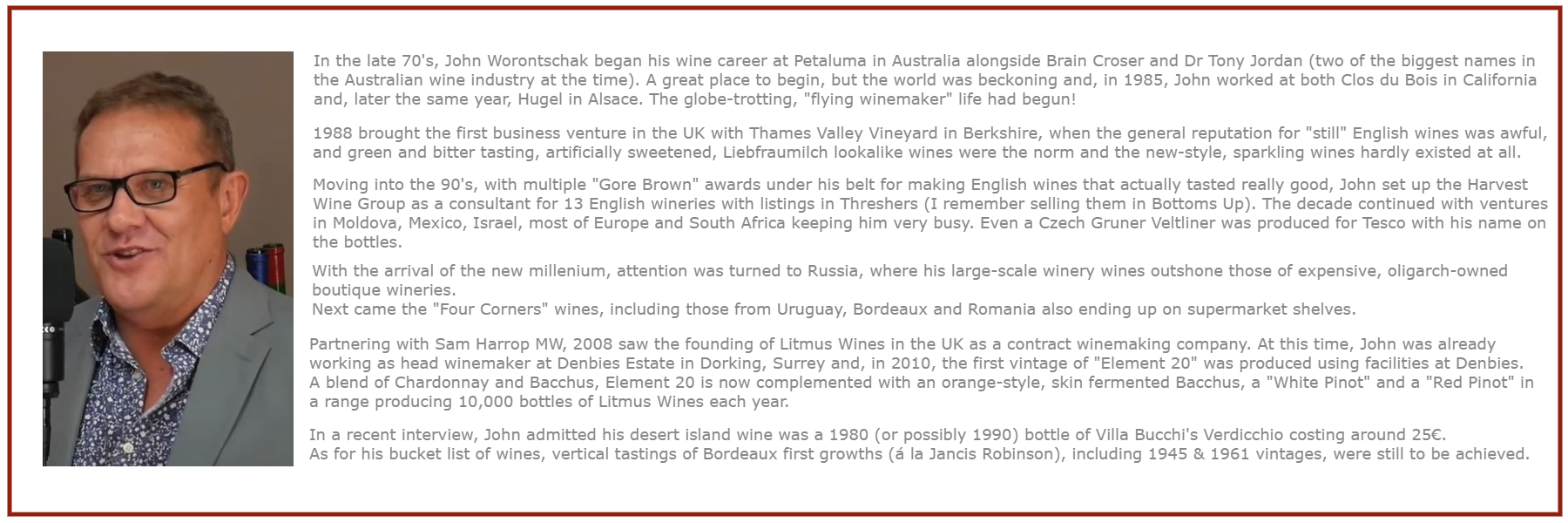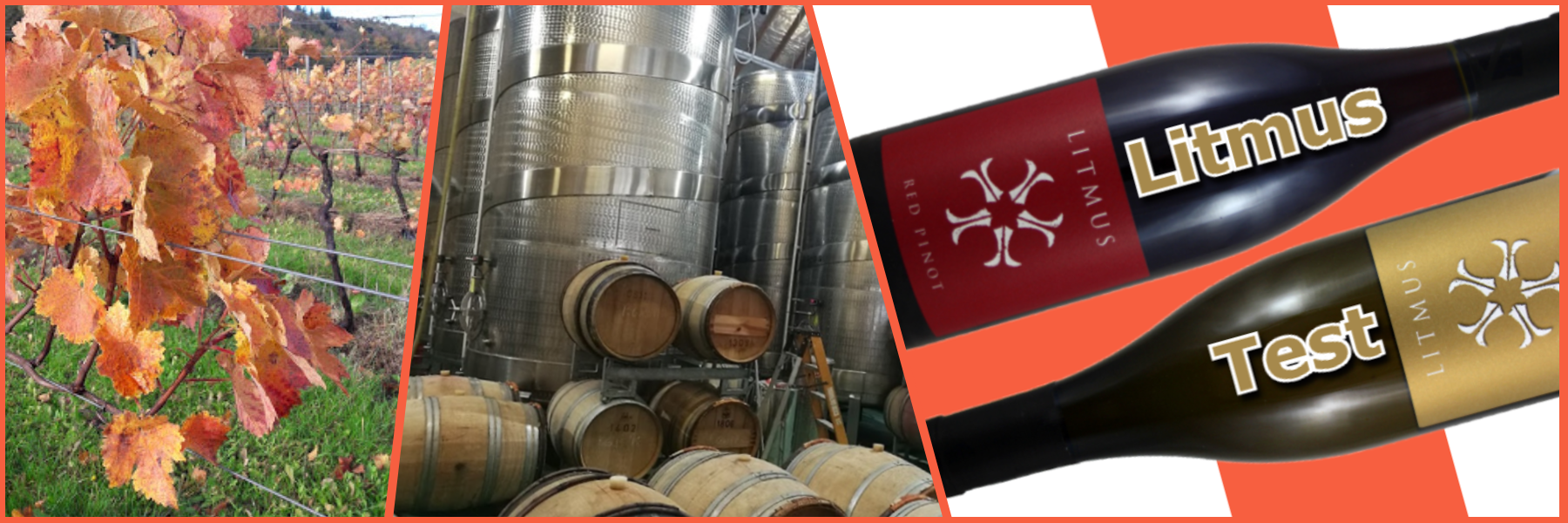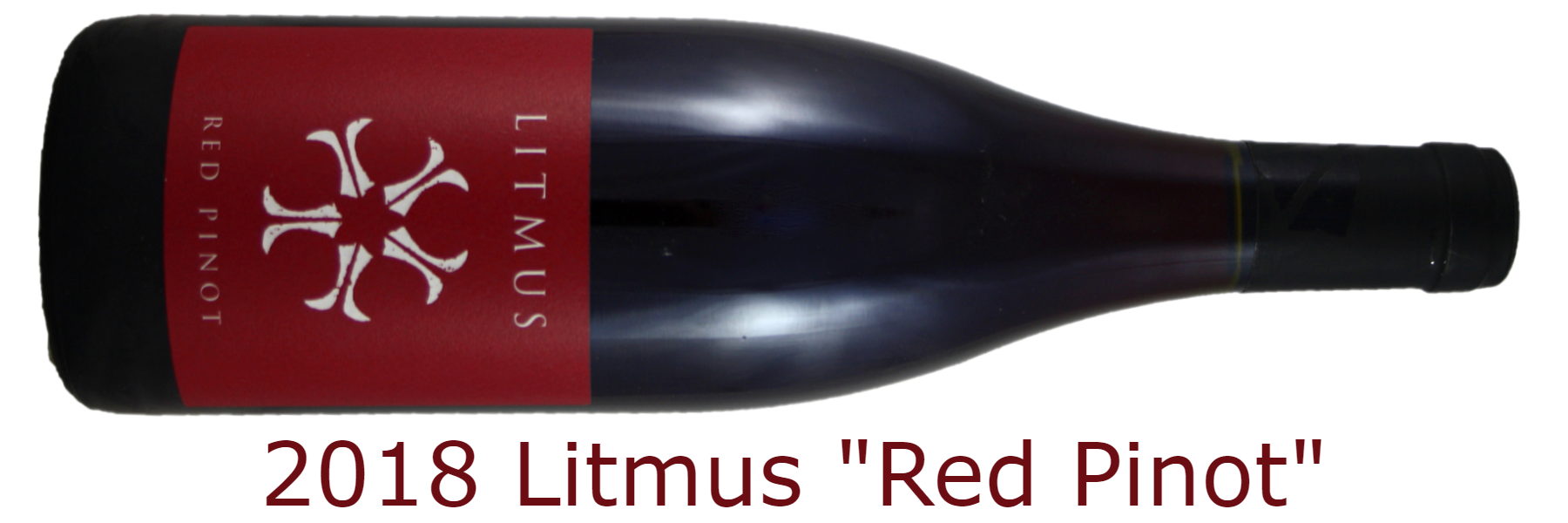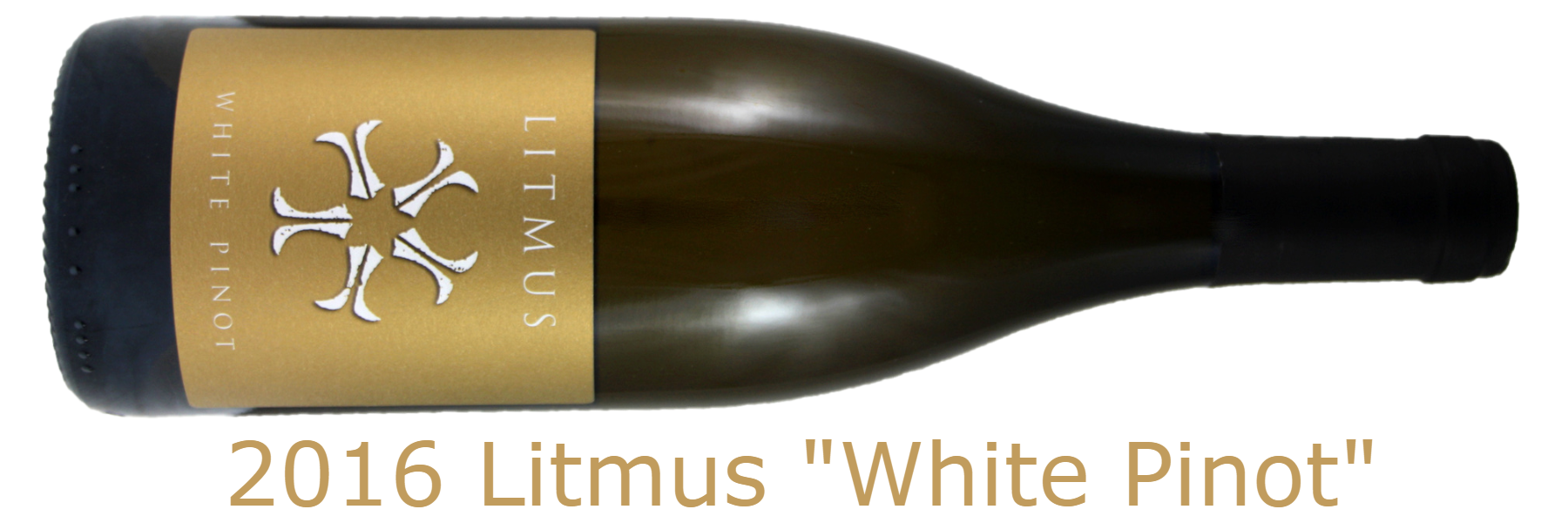As any chemistry student will know, using a piece of litmus paper to ascertain acidity is a pretty basic requirement for any career involving the use of legal chemical substances.
Paper turns red = acid, Paper turns blue = alkaline, Paper stays the same = neutral.
If only the process of making great wine were that simple!
Want to be a winemaker? You'll need a degree in oenology (that's wine chemistry) and, you might as well include the botany side as well, necessary to be a viticulturist and work in the vineyard looking after the precious vines.
Even making any sort of English wine that's worth drinking, and English wine comes only from grapes grown in England ("British" wine is another, very inferior product... please don't buy it), can be problematic, and has been so for many decades. You just cannot rely on the weather to provide consistency of sufficient heat/sunshine/rain at the right time, in the right quantity, to produce world class wines.
Sparkling wine, which needs a more acidic base wine and, hence a less ripe grape at harvest time, is where English wines' strengths lie. Superb English bubbly is made all over the country now, but we're talking about STILL wines, the ones we all buy for everyday consumption: Sauvignon, Malbec, Chardonnay, Pinot Noir, etc (the latter two being dominant in sparkling wine production, too). Can England even compete in this market?
Until very recently, with a little bit of global warming affecting the climate, English wines relied on using hybrid grapes, with strange, Germanic sounding names such as Reichensteiner, Siegerebe and Huxelrebe, or the more exotic Madeleine Angevine, Ortega and Bacchus (which tastes similar to Sauvignon) for white wines and Rondo & Dornfelder (for reds). These were the only vines available to plant in the UK if you actually wanted a crop of grapes to pick in the Autumn. According to all the experts, "normal" vines wouldn't grow and grapes, if you got any, wouldn't ripen enough to get a balanced wine with alcohol levels more than around 8-9%ABV.
So, sales of English wines were only made to a certain "hair cloth" brigade of customer who liked having the feeling of their tooth enamel being stripped from their mouth every time they drank a glass. Pleasant? No!
Selling the wines? A particularly hard job if you'd tasted them!
Bring on the knight in shining armour, the winemaker from down-under, Australian, John Worontschak.
A brief bio on the man, himself:

John has been making wines in England for a very long time, in between his flying winemaker, consultant duties all around the world. "Superhero", or what?
Bringing his career up to date, Litmus Wines are John's new baby.
Sourcing fruit from around the south-east counties, there are currently four wines in the range. All have received critical acclaim and Frazier's now stock two of them - "White Pinot" and "Red Pinot" both at £27.99/bottle. Not cheap, but similar in price to a bottle of sparkling Nyetimber Brut...and the quality is most definitely there.
All Litmus wines are designed to go with food and to be very ageworthy with balanced acidity.
The label represents a coccolith, an ancient sea creature whose calcium shell is found making up the chalky soils of the white cliffs of Dover and the number "20" is for the element Calcium which is twentieth in the periodic table.

John Worontschak's Litmus wines are made at Surrey's Denbies Estate winery.
Check out some reviews below by Julia Harding MW, writing for jancisrobinson.com in June 2020:
Litmus 2019 Orange Bacchus is produced from Kentish grapes, hand-picked and 100% destemmed. 93% Bacchus and 7% Ortega. The unpressed grape must is pumped into a stainless-steel vessel where both alcoholic fermentation and malolactic conversion ensues. 10% of the wine was fermented in old oak for back-blending. The dry wine remained on skins for 16 weeks without SO2 until draining. Pressings were discarded, and minimal SO2 additions were made prior to bottling under DIAM cork.
"Very pale for an 'orange' wine. Very definite aromas of Bacchus – similar to Sauvignon Blanc with notes of box – but here also some clementine and grapefruit. Some tannic firmness on the palate, and thus more obviously an orange wine, but not at all astringent and with freshness and depth, especially for a wine of just 12.5%. Gently chewy, grapey and almost floral but also with that box-tree/herbal side to it as well as a more nutty quality. Certainly complex and yet beautifully fresh. Their press release mentions fennel and I can see that now. Long and satisfying and even though it is aromatic, should still be a good food wine. Needs some experimentation to see what it would best accompany. Daring and successful with a nutty/marzipan aftertaste." (JH) 17/20 points
Initially a blend of Chardonnay and Bacchus in its first iteration back in 2010.
Litmus 2014 Element 20 Made by seasoned English winemaker and international consultant John Worontschak in collaboration with Denbies Wine Estate. 35% Chardonnay, 35% Pinot Gris and 30% Pinot Blanc, fermented separately in one- to five-year-old French oak barriques and left on the lees for a further 11 months with minimal intervention before blending and bottling. Further ageing in the bottle before release in May 2020. As their press release explains, 'Element 20 is named after the 20th element on the periodic table, calcium, paying homage to the chalky soils on which the wine was grown. Element 20 is widely recognised as being at the cutting edge of still English wines for quality and consistency and is only produced in the best of seasons.'
"Very pale gold. Complex, spicy golden aroma that seems to highlight the Pinot Gris. It is full in the mouth despite its very modest 12% alcohol and has all the freshness of a classic English wine. The oak shows in the lightly spicy and toasty flavour. This is a remarkably complex wine for the price. Seriously GV for a mature and complex English white wine. There's a slight – and attractive – tannic grip on the finish, suggesting this would be a terrific food wine. This is delicious now but still has some years ahead of it. (JH) " 17/20 points

100% Pinot Noir grown in Kent, aged in used French oak (1-5 years' old).
The first Litmus Red Pinot since the 2014 vintage. Made at Denbies Estate.
Pale cherry red with a vibrant translucency, the wine displays raspberry and clove characters on the nose. The palate is light, elegant and rich, being underpinned by an earthy spiciness and a long finish. This wine will gain further complexity with cellaring.
"Light cherry red. Pretty red fruit – cherry and cranberry – but not just pretty. Also a light and attractive earthiness and delicate spice, perhaps a slight note of vanilla, though the oak is well integrated and in the background. This is really moreish. Fresh and with a depth of ripe fruit that is rare from English Pinot Noir. Silky texture but sufficient structure to age well, I think. Definitely more Burgundian than stereotypical New World in its fruit profile and shape. Very good with a long, mouth-watering finish." 16.5/20 points, Julia Harding MW, jancisrobinson.com, October 2020.
“This is one of the best Pinot Noirs I’ve tried from the UK… lovely aromas of sweet cherry fruits with a hint of sappy greenness and some undergrowth notes...Very stylish and quite elegant.” 92/100 points – Dr Jamie Goode, WineAnorak.com, September 2021.
Litmus Red Pinot has been hailed by The Independent as "one of the best English red wines”.
2018 is widely acknowledged to be one the greatest vintages in England, making this probably one of the finest red wines in the UK to date.
Drink with light game dishes, charcuterie and full fat, hard cheeses.

100% Pinot Noir from Essex, fermented and matured in 2-5 year old French oak with 9 months on full lees.
Yes, you read it correctly. This is a WHITE wine produced using the red Pinot Noir grape.
Pale straw in colour with some evident peach, honeysuckle and smoky aromas. A complex wine displaying fullness and roundness rarely found in English wines. A structured palate, full bodied, rich and silky with a steely backbone of acidity and layered nuances hinting at its red wine origins.
"This has an intriguing nose of delicate lemon, pear and white peach with notes of cream and vanilla in the background. On the palate, this is fresh with a mandarin and lemon character, some table grape, very subtle toast and cream, and a fine acid line. Impressive stuff that is pure, delicate and full of interest." 91/100 points, Dr Jamie Goode, WineAnorak.com, June 2021
Full flavoured dishes and cheeses will pair well with this English white.
So, leave behind your belief that all English wines are either thin and weedy, or so acidic that you'll be paying a dentist to fit you a shiny set of false teeth!
Thankfully, times have moved on for the better or, maybe, global warming will spoil everything for the wine trade.
You have been warned (or should that be warmed?).


